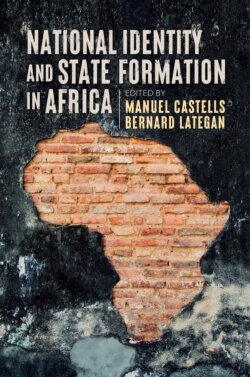Читать книгу National Identity and State Formation in Africa - Группа авторов - Страница 17
Decolonization as the quest for conviviality
ОглавлениеAmong many an ordinary African in many a community in rural and urban Africa, there is a widely shared conviction that the unconnected, disconnected or isolated life is not worth living. Such a life amounts to a social death. The belief in interconnections and in inclusivity is deep and strong. Individuals are actively encouraged to stay connected in and with their humanity, whatever their personal achievements, and whatever the challenges or predicaments confronting them.
African students and scholars interested in rethinking African social sciences and humanities could maximize and capitalize upon the currency of conviviality in popular African ideas of reality and social action. Conviviality is recognition and provision for the fact or reality of being incomplete. If incompleteness is the normal order of things – natural, human and supernatural – conviviality invites us to celebrate and preserve incompleteness and mitigate delusions of grandeur that come with ambitions and claims of perfection. Conviviality emphasizes the repair rather than the rejection of human relationships. It is more about cobbling and less about ruptures. It is fundamental to being human – biologically and socially – and necessary for processes of social renewal, reconstruction and regeneration. Conviviality depicts diversity, tolerance, trust, equality, inclusiveness, cohabitation, coexistence, mutual accommodation, interaction, interdependence, getting along, generosity, hospitality, congeniality, festivity, civility and privileging peace over conflict, among other forms of sociality.
Nothing short of convivial scholarship would do justice to the legitimate quest for a reconfiguration of African universities and disciplines of knowledge.
A truly convivial scholarship doesn’t seek, the way Rhodes and Kruger did, to define and confine Africans into particular territories or geographies, racial and ethnic categories, classes, genders, generations, religions or whatever other identity marker is in vogue.
Convivial scholarship confronts and humbles the challenge of over-prescription, over-standardization and over-prediction. It is critical and evidence-based, just as it is critical of the sources of evidence. It is a scholarship that sees the local in the global and the global in the local. It brings them into informed conversations, conscious of the hierarchies and power relations at play at both the micro and macro levels of being and becoming.
Convivial scholarship challenges us – however grounded we may be in our disciplines and their logics of practice – to cultivate the disposition to be present everywhere at the same time. It’s a scholarship that cautions disciplines, their borders and gatekeepers to open up and embrace differences.
With convivial scholarship, there are no final answers. Only permanent questions and ever exciting new angles of questioning.
